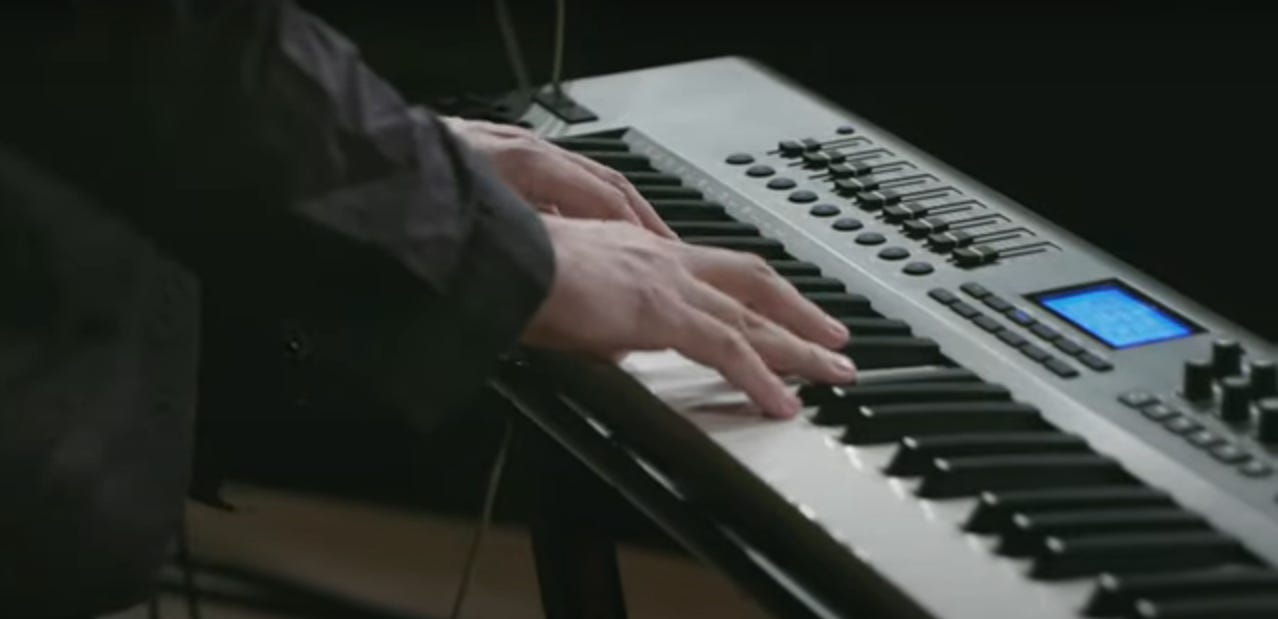"Royalty Free" Demands Creative Access for All
The work of composer Kevin MacLeod spins off in many ways for many people

“Everyday, I get to do a thing.”
Composer Kevin MacLeod isn’t necessarily one to humblebrag about his philosophy towards music distribution, but he’s also not very modest. In the documentary on his music Royalty Free, MacLeod’s description of how he feels about his work litters the landscape of his story, a film that is paved with triumph through persistence of vision and a pinch of smugness. MacLeod is certainly not fake, being a clear genuine soul who just wants to create, but if there’s anything that Royalty Free gets spot on with its observations on the man, it’s in his stubborn attitude towards art in general.
Does he deserve to go along with it all? Yes indeed.
Royalty Free is at its best when it’s covering MacLeod’s work alone. Undoubtedly, we’ve all listened to his music somehow and somewhere familiar. A friend labeled the sounds as “library music,” which might technically be true, but kind of diminishes what’s being done. His compositions range across the spectrum, and are widely available through his website as under the Creative Commons attribution(s). It took some years, but MacLeod makes a nice bit of money and gains a nice bit of recognition through his method of self-release. For him, “royalties suck” and art ought to be as accessible as possible. And gosh darn it, his art is quite good.
The documentary excels here, utilizing graphics and key interviews to explain the pros and cons of what MacLeod accomplishes - which can be touchy for other composers and musicians who don’t offer their catalogs as open as he does - and his day to day exercises in creativity. For example, he once re-scored a Cirque Du Soleil performance out of sheer annoyance with their version. He experimented with digital instruments and sounds to change the tone and focus on movies like the original Nosferatu, just to show how important music is to film. There’s nothing scatterbrained about him, but there sure is a type of madness going on.
Only in a few instances does Royalty Free flail and get muddled, and it’s mostly all at the end. It tries to get under MacLeod’s skin more deeply than before, asking personal questions on mental illness and adversity. In one scene that in any other film would’ve been left on the cutting room floor, the director pushes and pushes MacLeod to express some further emotion, to which MacLeod responds by making a clapboard gesture. The edit obliges, and just transitions back to the music. It’s awkward and out of place, but good intent was there, even if it ground the film to a halt most unnervingly.
Kevin MacLeod is such a great subject for interviewing, and Royalty Free really lucked out in holding conversation with him. As personable and likable as he is, the documentary matches him just about exactly - it’s a film of such great heights of positivity and idealism, giving gravity to not just one such bleeding heart, but to all. Does this mean that Royalty Free is stubborn too? Not at all. MacLeod puts his foot in his mouth once or twice, and the film doesn’t shy away. When discussing scoring movies, he suggests “ignore the director.” Be careful with that, Kevin. Be careful. 3.5/5




